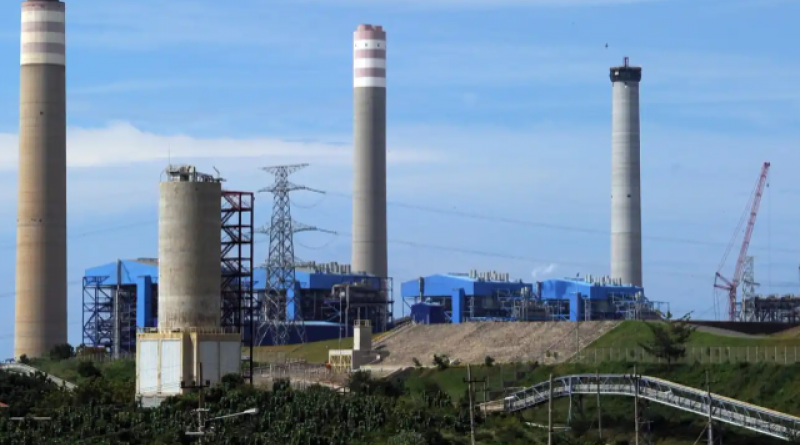Japan looks to end support for overseas coal power projects.

Country will align with US and Europe on moving away from carbon.
TOKYO -- The Japanese government is considering ending support for the exportation of coal-fired power plants to follow the lead of the U.S. and Europe on decarbonization, Nikkei has learned.
This marks a change in strategy for Tokyo, which had positioned power plants as the pillar of its effort to boost infrastructure exports.
Prime Minister Yoshihide Suga is set to discuss cooperation on decarbonization in his first meeting with U.S. President Joe Biden early next month. They plan to announce their initiative in the U.S.-led climate change summit to be held April 22, according to Japanese government sources.
Japan supports overseas coal power projects with loans from the Japan Bank for International Cooperation only when certain conditions are met, such as that the project uses cutting-edge equipment with lower greenhouse gas emissions than conventional plants and that the other country has adopted a policy to shift away from carbon.
Japanese companies including Mitsubishi Corp. have signed such deals with Vietnam and Indonesia.
A new coal power plant typically stays in service for around half a century. Japan has come under fire from the international community for its exports in this field, on the view that they lock in greenhouse gas emissions over the long term. This prompted Japan to introduce the current conditions for coal power equipment exports last July.
Pressure on Japan grew with the inauguration of Biden, who has positioned climate change as a top priority. Biden's special presidential envoy for climate, former Secretary of State John Kerry, has called on Environment Minister Shinjiro Koizumi to end government support for overseas coal projects.
Prime Minister Boris Johnson of the U.K., which will host the next Group of Seven summit in June, has also pressed Japan to end such support.
The Japanese stance on coal has long been criticized by overseas investors on the grounds that it goes against efforts to combat climate change. Foreign governments, mainly those of the U.S. and European nations, have joined the chorus.
The Suga government decided that it should work toward terminating support for coal projects, given that it has made decarbonization as a pillar of its growth strategy.
New coal projects have launched one after another in the Association of Southeast Asian Nations, the main customer for Japan's coal power equipment. Coal was the source of more than 40% of the power generated in the bloc in 2019.
Developing countries face a heavy financial burden to build plants for generating electricity needed for economic growth. Industrialized nations and international lenders thus need to devise ways to support emerging economies so that they can achieve both decarbonization and economic growth.
For example, Japan is strong in technologies to mix ammonia with coal to reduce greenhouse gas emissions from coal power plants. Under one possible scenario, Japan would receive carbon credits for providing such technologies to existing power plants in emerging economies.
Japan will need to revise an export infrastructure strategy focused on power plants. Negotiations to export nuclear power plants to such countries as Turkey and the U.K. have fallen through. Once Japan pulls away from coal, it intends to concentrate on such renewable energy sources as wind.
29 March 2021
asia.nikkei





